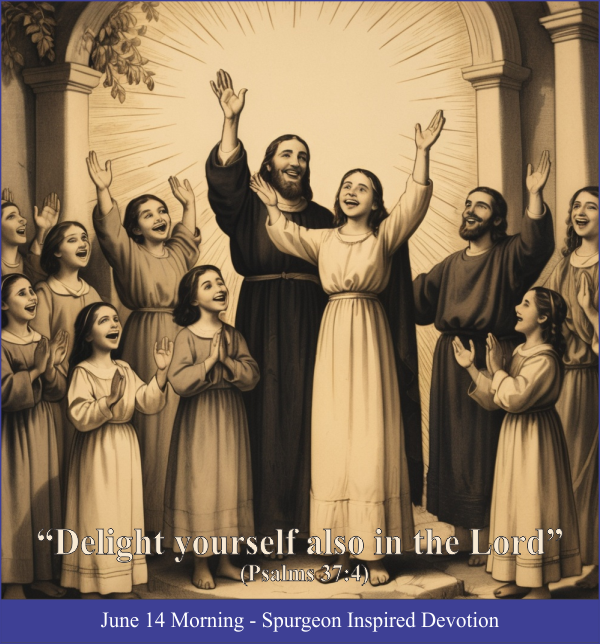
| June 14 Morning Devotion |
|
|
“Delight yourself also in the Lord” (Psalms 37:4) Spurgeon wrote: “The teaching of these words must seem very surprising to those who are strangers to vital godliness”. What did Spurgeon mean by “vital godliness”? It’s one of the terms Evangelicals used before 1900, to distinguished themselves from church-goers who weren’t born again. They also called it “experimental religion”, because if you weren’t born again, you never experienced the change of character that takes place when God supernaturally regenerates your heart and fills you with the Holy Spirit. For more on this subject, click here. Saints delight in God, and true salvation, or as Spurgeon said, “true religion”, overflows with happiness and joy. Ungodly persons and nominal Christians (Christians in name only), never look upon religion as a joyful thing; to them it’s a service, a duty, or a necessity, but never a pleasure or delight. If they do anything special for their religion, it’s so they can gain something other than a more intimate relationship with Christ. The thought of delight in religion is so strange to most church-goers, that no two words in their language stand further apart than "holiness" and "delight." But believers who know Christ, understand that delight and faith are inexorably tied, and the gates of Hell can’t separate them. They love God with all their hearts, knowing His ways as pleasant, and His paths as peace. We don’t fear God because of any compulsion; our faith isn’t a chain that holds us, we’re not dragged to holiness, nor driven to duty. No, our piety is our pleasure, our hope is our happiness, and our duty is our delight. Delight and true religion are as allied as root and flower; as indivisible as truth and certainty. “‘Tis when we taste Thy love, Our joys divinely grow, Unspeakable like those above, And heaven begins below”.
|
| 📧Get daily devotionals directly your email box.📧 |
 |